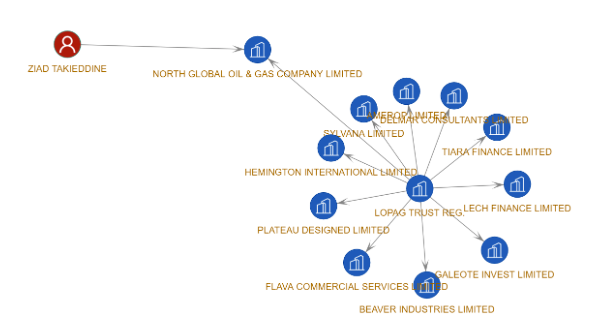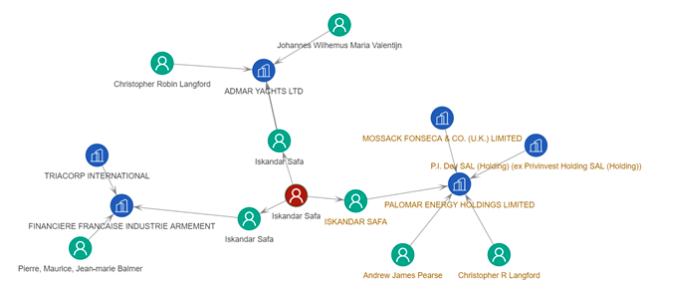
The European Union’s Sixth anti-money laundering directive(6AMLD) came into force on December 3, 2020, giving financial institutions a 6-months window to align with the new regulatory framework. What are the fundamental changes? What is the impact on the current KYC/AML process?
This new directive widens the fields of responsibilities for banking institutions by highlighting the critical role of accomplices in money laundering schemes. "Complicity", a term that encompasses any person who facilitates money laundering will be penalised under the new European law. Thus, the new directive enforces the legal of doctrine of “aiding and abetting” related to the guilt of someone who aids or abets (encourages, incites) another person in the commission of a crime. In layperson terms, anyone who is connected in any way shape or form with a criminal and had some direct or direct interest in laundering the proceeds of crime is liable in the eyes of the law.
To check whether a client is an accomplice in a money-laundering scheme, the bank needs to establish and assess the full picture of that client. Therefore, as part of their KYC processes, banks should analyse the network of their clients’ connections using data gleaned from companies registrars and transaction monitoring.
The 6AMLD could be a game-changer for Regtech firms supplying banks with compliance solutions. One thing is sure: compliance is moving away from basic box-ticking approaches and goes more towards a holistic client discovery process empowered by machine learning techniques.
“I guess the main thing that came out of the Panama Papers was that Ukrainian President Poroshenko had promised to divest of his chocolate company and instead, he simply moved it into an offshore account. And on the very day that he was increasing the attacks on the eastern Donbas region of Ukraine, the export sector, he was signing documents to conceal his own money offshore.”
Michael Hudson, American economist
Focus: Bitcoin going mainstream
Visa Inc. announced last week its partnership with the cryptocurrency startup BlockFi to offer a credit card that rewards purchases with Bitcoin rather than airline miles or cash. The second wave of the COVID pandemic hampered the airlines and the hospitality industry seriously. Therefore, many payment service providers offering points serving frequent travellers are reconsidering their options. Visa proposing Bitcoin-based rewards reveals that for high-street banks, Bitcoin is safe. Since its inception, the leading crypto-currency was perceived as a platform for criminals and money launderers. Over the years, law enforcement tried to tackle the crime spree in the crypto-currency arena. Nevertheless, new solutions facilitating money laundering exist in the market. Amongst them, we note the mixer(tumbler) service that mixes different streams of potentially identifiable cryptocurrency. Mixers are one of the risks that are still not fully yet addressed, and only time will tell whether Visa managed to qualify this risk or adopted Bitcoin just for marketing purposes.
Focus: Ziad Takieddine
The French-Lebanese businessman Ziad Takieddine was retained last week in Beirut by the local police. The Interpol issued a public prosecution over Ziad being involved in a matter of corruption and illicit funding of Sarkozy’s election in 2007. Ziad Takieddine had allegedly intermediate the relationship between Nicholas Sarzkoy and the ex-Lybian dictator Moamer Kadhafi. Takieddine fled to Beirut after a French court condemned him to five years in jail for corruption in an arms sale transaction. His name also appeared in the Panama Papers, which revealed that he controlled an offshore company based in Liechtenstein.

GDPR vs 6AMLD
There are times when laws contradict each other. The EU General Data Protection Regulation (GDPR) went into effect on May 25, 2018, aiming to increase the protection of private data concerning physical persons.
Needless to say that within a financial institution, the KYC process deals with non-public data about identifiable physical persons. In order to establish the possible aiding and abetting of a person in a money laundering case (as requested in the 6AMLD), banks need to increase the number of searches in the different databases and connect the various data sources. Moreover, a comprehensive customer discovery process infers information about an individual based on available data.
The 6AMLD pushes KYC to go beyond simple identity checks and searches in lists of convicted offenders. To assess the risk of a client it is first necessary to establish, analyse and understand the client and its "network". Such an approach requires the use of complex algorithms that gather and synthesise information about a company or a physical person. These algorithms infer new information using the data from initial sources. Even when the initial data is public and not wholly concerned by the GDPR, the inferred information is non-public, thereby being relevant for the data privacy regulation.
For example, a search concerning the Franco-Lebanese businessman Iskandar Safa would reveal information about companies he controls, which are incorporated in Great Britain, France and several tax havens (Panama Papers). The basic information is currently public, but performing the data linkage creates confidential information about Safa's global network. This new global picture being non-public is affected by the regulation concerning data privacy. GDPR applied “a la lettre” could hinder the fully-fledged implementation the new European anti-money laundering directive.

Word on the street: ‘Ndragheta hit by mass indictment
A judge based in the Calabrian city of Lamezia Terme indicted 444 alleged member of the reputed criminal organisation ‘Ndrangheta. The indictment comes one year after the Italian police arrested 334 people, including lawyers, accountants, public officials and court clerks, in one of the largest anti-mafia operations ever seen in Italy.
The trail that will start next year in January is the most prominent case since the famous “Maxi-trail” from the late 1980s. Over the last three decades, the Sicilian Mafia lost its leading position in the criminal world, and the Calabrian clans became the most important criminal group in Europe. ‘Ndrangheta has a different structure compared to the Sicilian mafia and would be very interesting to see where the Italian government will be able to turn a few of the indicted criminals into informants.